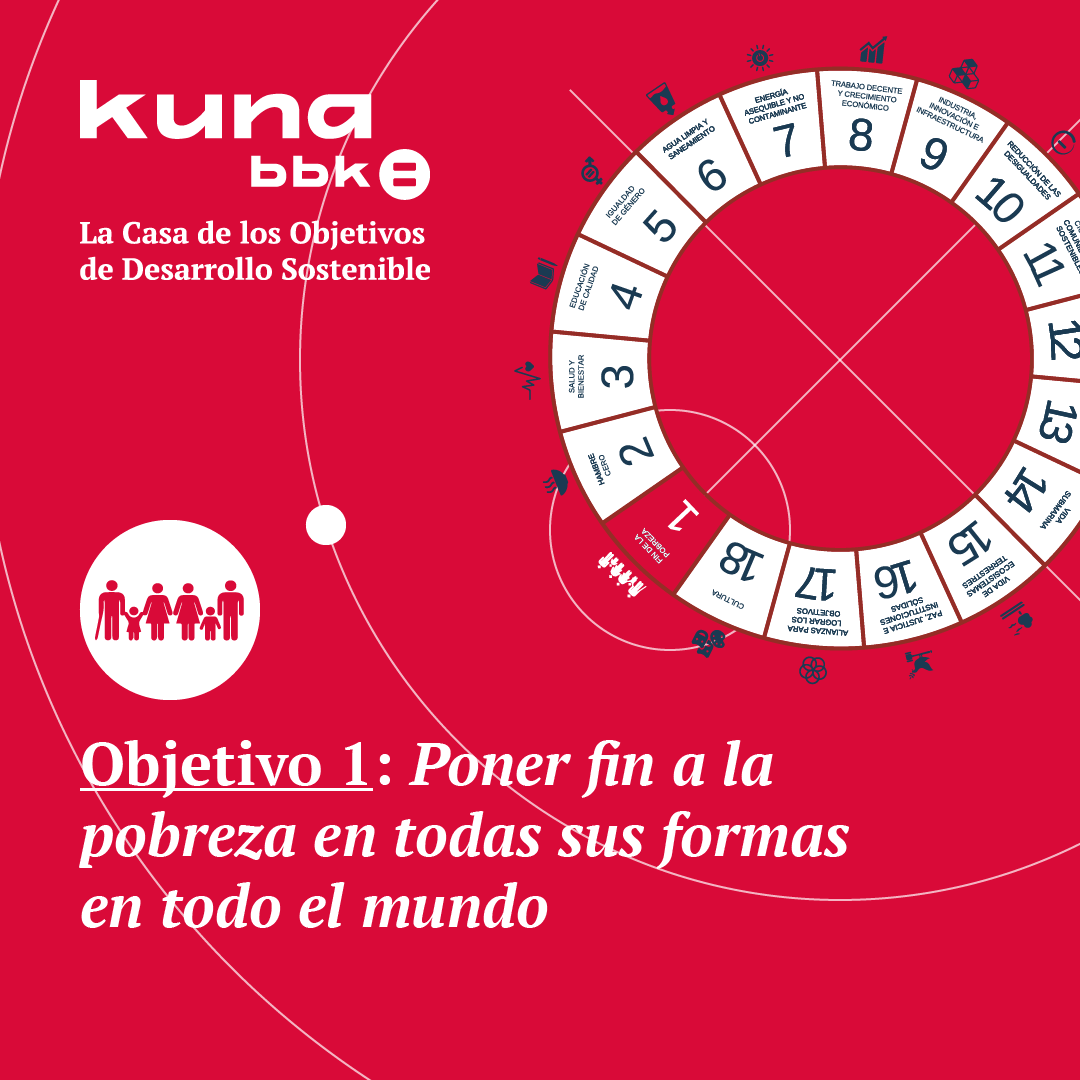
SDG 1: End poverty. Why is it so important and what can we do?
SDG 1: End poverty
According to the United Nations, poverty is not only limited to the lack of income and resources, but also encompasses the deprivation of essential rights, social exclusion and the lack of access to basic services, such as education and health.
Within the sustainable development funds, number 1 aims to elevate all people above the minimum welfare threshold.
The reality of poverty
In order to understand the importance of SDG 1, it is essential to know the magnitude of poverty in the world. Approximately 9.2% of the world’s population, that is to say, more than 700 million people, live under extreme scarcity to meet their basic needs. In addition, thousands of millions struggle every day to achieve access to proper food and to not suffer a lack of health and education services.
Why is SDG 1 important?
This sustainable development goal takes care of:
- Poverty is a violation of fundamental human rights. Every person should have the opportunity to live in dignity and have access to basic conditions of well-being.
- The lack of resources perpetuates the inequality and deprivation cycle which undermines the efforts to achieve sustainability.
- The lack of needs is quite often related to social and political instability. Thus, reducing it contributes to peace and stability in communities and countries.
- Eliminating the number of poor people may stimulate economic growth by expanding the base of consumers and promoting investment in human capital.
Actions for meeting the first sustainable development goal
Outlined below are the actions you can take to advance in meeting this goal.
At an Individual level
Learn about how far the lack of resources extends across the world and what impact it has on your community and globally. Thus, you can share this knowledge in order to raise public awareness. Likewise, you can contribute to charities who work on alleviating social exclusion and hunger in the world by offering your time as a volunteer in local projects.
Conversely, giving support to products and companies who follow ethical and sustainable commercial practices is suitable to prevent uncontrolled consumption and waste.
At a community level
We highlight economic empowerment. In this manner, we encourage you to promote training programmes and skills development for disadvantaged communities. This will enable them to access jobs and undertake economic initiatives. Similarly, you can collaborate in improving access to basic services, in your community such as health and education.
You can also support programmes which provide access to microcredits and financial services to low-income people to promote entrepreneurship.
At a government level
You can advocate for progressive tax policies and effective social assistance programmes, in addition to those which reduce the gap between richest and poorest.
You can also work to implement accessible and quality educational systems and put in place policies which promote employment creation and access to decent jobs.
In short, SDG 1 is a key goal for seeking a more just and sustainable world. Social exclusion is not only an economic issue, but a violation of human rights and an obstacle for sustainable development. We all have a role to play in order to achieve a more equitable and sustainable world.
